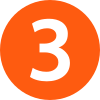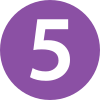Jongno 3(sam)-ga station
 | |||||||||||||||||||||||||||||||||||
| Korean name | |||||||||||||||||||||||||||||||||||
| Hangul | 종로3가역 | ||||||||||||||||||||||||||||||||||
| Hanja | |||||||||||||||||||||||||||||||||||
| Revised Romanization | Jongnosamga-yeok | ||||||||||||||||||||||||||||||||||
| McCune–Reischauer | Chongnosamga-yŏk | ||||||||||||||||||||||||||||||||||
| General information | |||||||||||||||||||||||||||||||||||
| Location | 61-68 Jongno 3-ga, 129 Jongno Jiha, Jongno-gu, Seoul[1] | ||||||||||||||||||||||||||||||||||
| Coordinates | 37°34′12″N 126°59′30″E / 37.57000°N 126.99167°E | ||||||||||||||||||||||||||||||||||
| Operated by | Seoul Metro | ||||||||||||||||||||||||||||||||||
| Line(s) | Line 1 Line 3 Line 5 | ||||||||||||||||||||||||||||||||||
| Platforms | 4 | ||||||||||||||||||||||||||||||||||
| Tracks | 6 | ||||||||||||||||||||||||||||||||||
| Construction | |||||||||||||||||||||||||||||||||||
| Structure type | Underground | ||||||||||||||||||||||||||||||||||
| Key dates | |||||||||||||||||||||||||||||||||||
| August 15, 1974[1] | Line 1 opened | ||||||||||||||||||||||||||||||||||
| October 18, 1985[1] | Line 3 opened | ||||||||||||||||||||||||||||||||||
| December 30, 1996[1] | Line 5 opened | ||||||||||||||||||||||||||||||||||
| Passengers | |||||||||||||||||||||||||||||||||||
| (Daily) Based on Jan-Dec of 2012. Line 1: 72,780[2] Line 3: 19,055[2] Line 5: 26,250[2] | |||||||||||||||||||||||||||||||||||
| |||||||||||||||||||||||||||||||||||
Jongno 3(sam)-ga Station is an underground station on lines 1, 3 and 5 of the Seoul Subway in South Korea.
In December 2010 the station is recorded as having the fifth highest WiFi data consumption of all the Seoul Metropolitan Subway stations, following Express Bus Terminal Station, Sadang Station, Dongdaemun Station and Jamsil Station.[3]
Station layout
[edit]| G | Street level | Exit |
| L1 Concourse |
Lobby | Customer Service, Shops, Vending machines, ATMs |
| L2 Line 1 platforms |
Side platform, doors will open on the left | |
| Southbound | Line 1 toward Incheon, Sinchang or Seodongtan (Jonggak) → | |
| Northbound | ← Line 1 toward Soyosan, Uijeongbu or Kwangwoon University (Jongno 5(o)-ga) | |
| Side platform, doors will open on the left | ||
| L3 Line 3 platform |
Northbound | ← Line 3 toward Daehwa (Anguk) |
| Island platform, doors will open on the left | ||
| Southbound | Line 3 toward Ogeum (Euljiro 3(sam)-ga) → | |
| L4 Line 5 platform |
Westbound | ← Line 5 toward Banghwa (Gwanghwamun) |
| Island platform, doors will open on the left | ||
| Eastbound | Line 5 toward Hanam Geomdansan or Macheon (Euljiro 4(sa)-ga) → | |
History
[edit]The station opened to Line 1 services on August 15, 1974. On October 18, 1985, services on Line 3 began stopping at Jongno 3(sam)-ga, and on December 30, 1996, Line 5 trains began calling here.
Entrances
[edit]The following places are accessible from this station's exits as listed.
- Exit 1: Jongno 1, 2, 3, 4 Ga Dong Office, Jongno 2 Ga Post Office, Jongno 2 Ga Public Safety Centre, Tapgol Park; Insa Dong
- Exit 2; 2-1: Changdeokgung
- Exit 3: Donui Dong; Jongno 3 Ga Fire Station; Jongno 3 Ga Public Safety Centre; Jongmyo; Jongmyo Citizens' Park
- Exit 4: Nakwon Dong. Exit 6 is used from Line 1.
- Exit 5: Seoul Gyodong Primary School; Seoul Unhyeon Primary School; Jongnno 1, 2, 3, 4 Ga Dong Office; Jongno 2 Ha Post Office; Jongno 2 Ga Public Safety Centre; Jongno Tax Office; Tapgol Park. Exit 3 or 6 is used from Line 1.
- Exit 6: Jongno 3 Ga Fire Station
- Exit 7: Anguk Dong; Donhwamun; Jongno 3 Ga Public Safety Centre; Changdeokgung
- Exit 8: Myo Dong; Changdeokgung; Jongmyo Citizens' Park
- Exit 9: Jongmyo; Jongno 3 Ga Fire Station; Jongno 3 Ga Public Safety Centre
- Exit 10: Jongmyo; Jongmyo Citizens' Park
- Exit 11: Daerim Shopping
- Exit 12: Jongno 4 Ga
- Exit 13: Jangsa Dong; Cheonggyecheon 3 Ga
- Exit 14: Cheonggyecheon 3 Ga; Seoul Teenagers' Training Centre
- Exit 15: Gwansu Dong; Jongno 2 Ga; Industrial Bank of Korea, End of Jongno
Tourism
[edit]In January 2013, the Seoul Metropolitan Rapid Transit Corporation, which operates this line, published free guidebooks in three languages: English, Japanese and Chinese (simplified and traditional), which features eight tours as well as recommendations for accommodations, restaurants and shopping centers. The tours are designed with different themes, e.g. Korean traditional culture, which goes from this station to Anguk Station and Gyeongbokgung Station on line No 3 that showcases antique shops and art galleries of Insa-dong.[4]
References
[edit]- ^ a b c Monthly Number of Passengers between Subway Stations Archived 2014-10-06 at the Wayback Machine. Korea Transportation Database, 2013. Retrieved 2013-10-15.
- ^ "Seoul Subway Line No. 2 Becomes Major WiFi Hotspot". The Chosun Ilbo. 24 December 2010. Retrieved 25 April 2012.
- ^ Kwon, Sang-soo (26 January 2013). "Free guide for Seoul's subway riders". Korea JoongAng Daily. Archived from the original on 12 April 2013. Retrieved 27 January 2013.
{{cite news}}: CS1 maint: unfit URL (link)



